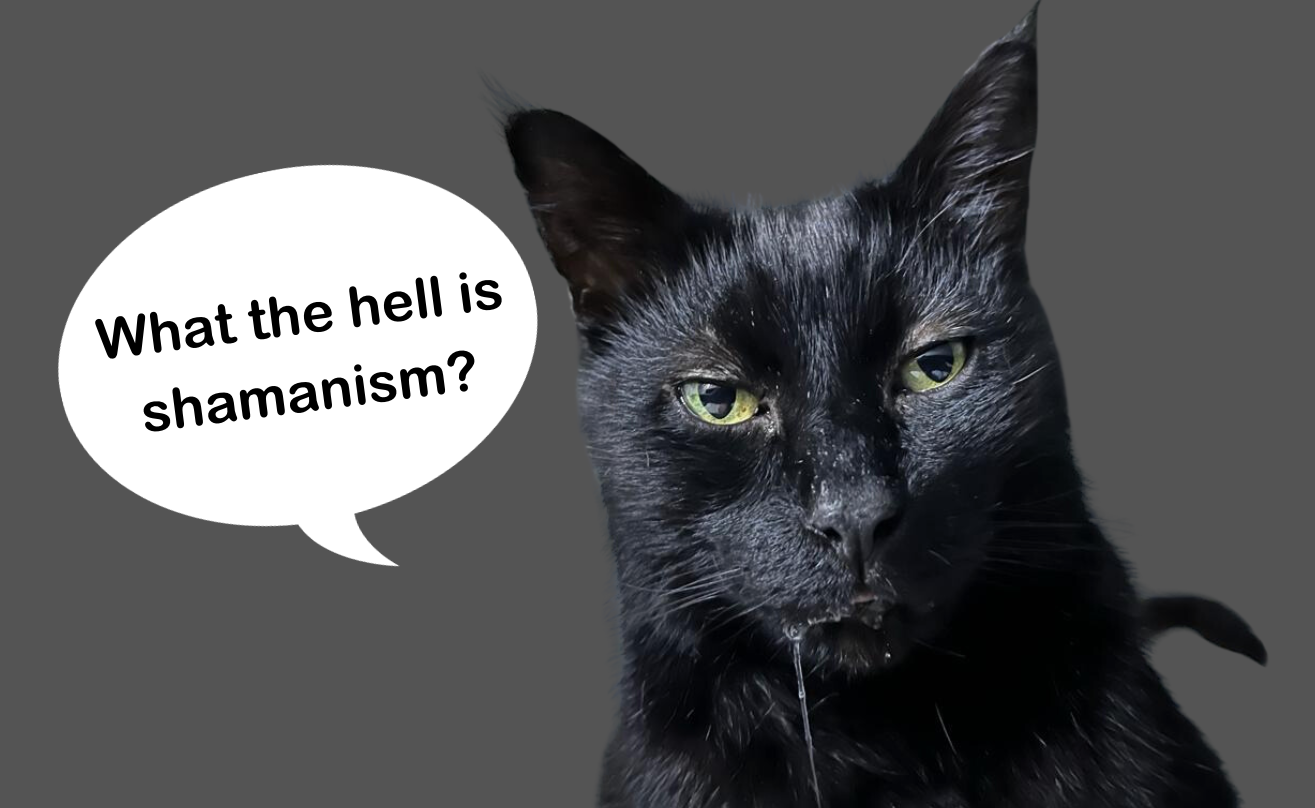What the hell is shamanism?
It's incumbent on every shamanic practitioner to address this subject eventually. So could it be my turn to poke the bees nest?
Go on then Rob, what's shamanism?
The word Shaman, or “Saman”, comes from the Evenk tribal lineage; covering South Eastern Siberia, Northern China and Russia.
It means: to heat up, or get excited/frenzied; a bit like the boiling of water.
Shamanic traditions exist in particular corners of the globe, each with a unique set of tools and ceremonies to promote survival and sustain the community.
Shamanism is often incorrectly referred to as the root of all organised religion. This is in fact, ANIMISM.
All shamanic cultures are animistic, however, not all animistic cultures are shamanic. Confused yet?
It's a hot potato in academic circles, highlighting where anthropological research clashes with modern day, spiritual jargon.
So, in order for us to grasp shamanism, we must first understand the meaning of animism.
Animism is the basic understanding that everything is alive (rocks, plants and inanimate objects included) and in possession of a soul, or spirit.
Animism acknowledges a universal connection with the spirit world.
Shamanism is the act of actually visiting those spirits in a trance state.
No trance? No shamanism.
OK Rob, so what is shamanism NOT?
In the Western world, we’re not part of a traditional, shamanic lineage.
Despite this, the word, shamanic is frequently misused. Normally as a casual adjective, arbitrarily tagged onto anything new-age and spiritual.
Much as it taints the Western ego, not to be ‘chosen’ in some way, ours is an entirely different sickness!
Imagine for a moment, travelling all the way to Outer Mongolia to get your dry cleaning done. Not the most time efficient way to go about things, right?
So it follows, attempting to build relationships with localised spirits, in far-flung lands, to try and solve problems in North London. Less still, should we assume that these spirits have any interest in us.
So what equates to shamanism on home turf?
Any curiosity around shamanic cultures is completely justified. We Westerners are rudderless, with no indigenous link, or little in the way of direct connection to our own lands. This thread was severed long ago; mainly by organised religions in their crusade for dominance and power.
Westernised, or sometimes “core”, shamanic techniques (heavily diluted though they are), remain a good way to dialogue with spirit. The shamanic drum journey, conducted in a very specific way, is one such tool.
As medicine wheels go, there are many. The tradition I practice came from Leo Rutherford via Hyemeyohsts Storm and Harley SwiftDeer Reagan. It's said to be of Mayan origin and is the first (perhaps the only?) time indigenous teachings have surfaced in such a complete form. This hasn't been without controversy and allegations of cultural theft either.
So what about all these other healing modalities Rob? Where do they sit?
Breathwork and sound therapy can induce altered states of consciousness; some of which are comparable to shamanism. However, modern strands of these practices tend to be drawn from the early 60s era. --More new age than shamanic, but incredibly powerful nonetheless.
Reiki is an energy healing modality, firmly rooted in Japanese culture and developed in the early 20th century. --Pre dates the new age movement, but again, not shamanic in origin.
Celtic traditions are powerful in their own right but no evidence has been found to support a direct Celtic Shamanism lineage (yet). See instead Celtic Paganism, along with the more modern, Celtic Reconstructionism and Neo-druidism movements. --Equally fascinating, but not shamanism.
Similarly, occult traditions draw inspiration from a wide range of sources, including Hermeticism, ceremonial magick, Rosicrucianism, Kabbalah, and Eastern philosophies such as Yoga and Tantra. --Are these in any way shamanic? Nope.
Got a headache yet?
Shamanism isn’t necessarily all about psychotropic plant medicines either. Despite what you might hear, not all shamanic cultures work with ayahuasca, san pedro, peyote, iboga, cannabis or cacao.
Finally, shamanic trance work has nothing to do with schizophrenia or western spectrum disorders, despite similarities in some of the symptoms.
So there we have it. That was cathartic! Send over your thoughts as I'd love to hear them.
Next week I'll be looking at the similarities (and stark differences) between shamanic trance dance traditions and rave culture. Stay tuned!

